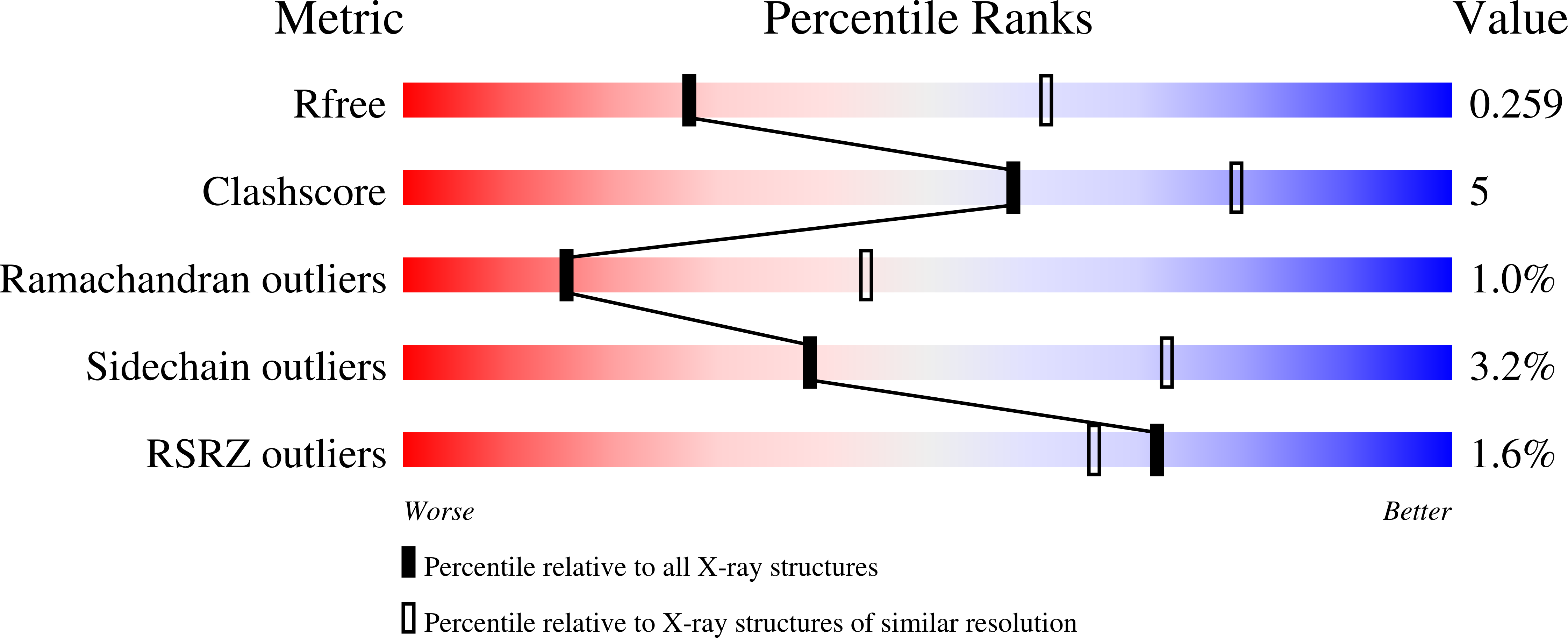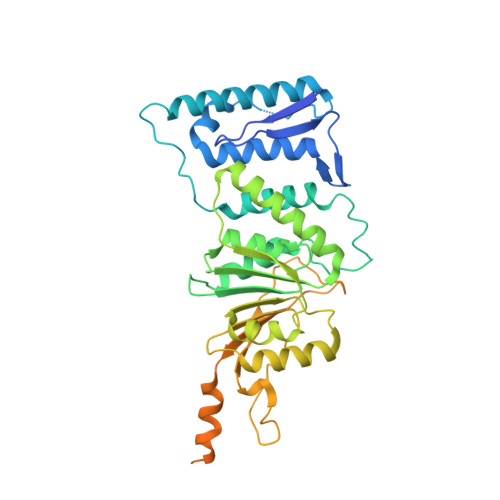Conformational adaptation drives potent, selective and durable inhibition of the human protein methyltransferase DOT1L.
Basavapathruni, A., Jin, L., Daigle, S.R., Majer, C.R., Therkelsen, C.A., Wigle, T.J., Kuntz, K.W., Chesworth, R., Pollock, R.M., Scott, M.P., Moyer, M.P., Richon, V.M., Copeland, R.A., Olhava, E.J.(2012) Chem Biol Drug Des 80: 971-980
- PubMed: 22978415
- DOI: https://doi.org/10.1111/cbdd.12050
- Primary Citation of Related Structures:
4EK9, 4EKG, 4EKI - PubMed Abstract:
DOT1L is the human protein methyltransferase responsible for catalyzing the methylation of histone H3 on lysine 79 (H3K79). The ectopic activity of DOT1L, associated with the chromosomal translocation that is a universal hallmark of MLL-rearranged leukemia, is a required driver of leukemogenesis in this malignancy. Here, we present studies on the structure-activity relationship of aminonucleoside-based DOT1L inhibitors. Within this series, we find that improvements in target enzyme affinity and selectivity are driven entirely by diminution of the dissociation rate constant for the enzyme-inhibitor complex, leading to long residence times for the binary complex. The biochemical K(i) and residence times measured for these inhibitors correlate well with their effects on intracellular H3K79 methylation and MLL-rearranged leukemic cell killing. Crystallographic studies reveal a conformational adaptation mechanism associated with high-affinity inhibitor binding and prolonged residence time; these studies also suggest that conformational adaptation likewise plays a critical role in natural ligand interactions with the enzyme, hence, facilitating enzyme turnover. These results provide critical insights into the role of conformational adaptation in the enzymatic mechanism of catalysis and in pharmacologic intervention for DOT1L and other members of this enzyme class.
Organizational Affiliation:
Epizyme Inc., 325 Vassar Street, Cambridge, MA 02139, USA.















